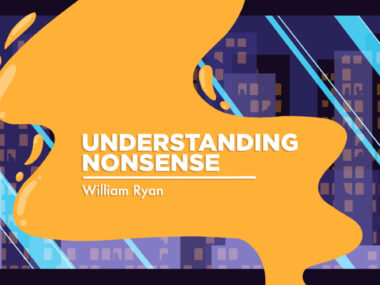Group Focuses on Rare Disease Clinical Trial Participation
Written by |

Participation in clinical trials exposes rare disease patients to financial, physical, and emotional pressures, according to the results of a patient focus group series.
“Rare disease trial participants are running an endurance race they are highly motivated to complete, but these incremental burdens negatively impact their ability or willingness to enroll or remain in clinical trials,” KimberLee Heidmann, vice president of patient services at Scout Clinical, said in a press release. Scout Clinical is a patient logistic provider that conducted the rare disease clinical trial focus group.
The results were published in a white paper titled “Crossing the Finish Line – Why Effective Participation Support Strategy is Critical to Trial Efficiency and Success in Rare Diseases.” The complete report from the focus group series is available for download here.
According to Scout Clinical, which conducted the initiative along with ICON plc (formerly known as PRA Health Sciences), so far there has been no systematic research available on the support needs of rare disease patients participating in clinical trials, or on the impact of unmet participation support, as it relates to trial completion.
This first-of-its-kind focus group research sought to amplify the rare disease community’s voice regarding clinical trial participation. The focus groups provided insights about the discrepancy between patients’ experiences and the participation support services offered to them during clinical trials.
“Focus group participants said that motivation is not enough. Identifying where, specifically, trial support services must improve is the first step toward making rare disease trial participation and completion less onerous,” Heidmann said.
From December 2020 to February 2021, the researchers conducted four virtual focus groups with a total of 16 individuals affected by a rare disease who had participated in at least one clinical trial. All participants were North American (U.S. or Canada).
The insights from the focus groups were used to develop an online survey (conducted from Jan. 26 to Feb. 19), and was open to all rare disease patients and caregivers, regardless of whether they had taken part in a clinical trial. There were 126 respondents who are affected by a total of 69 rare diseases.
The data gathered revealed that, although the focus group participants were highly motivated to take part in clinical trials, they face a variety of pressures due to factors that adversely impacted their ability to do so. These pressures could be categorized into three main types: financial, physical and logistical, and psychological and emotional.
While nearly all the respondents made concerted efforts to overcome these obstacles and complete the trials, it was not always possible.
“This pragmatic reality contrasts with a general perception within the drug development ecosystem that, due to the high unmet need within rare disease, motivation suffices to ensure a participant’s ability to clear some, or all, of the hurdles of trial participation,” the white paper states.
Focus group participants identified several financial barriers to successful trial completion. In total, 50% of the survey respondents indicated they sometimes or frequently experienced financial difficulties. Trial policies may not cover certain participant expenses, such as airfare for site visits, wheelchair-accessible rental vehicles, and hotel accommodations. Participation in trials also includes “hidden” costs such as childcare and mileage expenses.
Some participants reported barriers to reimbursement for expenses that were covered by the trial. Receipts were not always available, and waiting for reimbursement negatively affected their financial circumstances. Others reported lost income due to clinical trial participation.
“The results of our research suggest that current participation support practices leave trial participants with incremental financial pressures, which become barriers to joining or completing a trial. This emphasizes the importance of considering the financial pressures that may be associated with participation as a key to rare disease trial risk assessment,” the report states.
Since rare disease clinical trials usually take place at relatively few locations, participants also face significant physical and logistical pressures. Focus group participants reported experiencing physical strain, fatigue, pain, and anxiety while traveling, navigating unfamiliar healthcare environments, and receiving care from unfamiliar providers.
Regarding psychological and emotional pressures, most of the focus group participants experienced this type of hurdle and a broad range of triggers were reported. Some rare disease patients missed their families while they participated in trial visits and became hyperaware of their condition. Some parents reported feeling worried about whether experimental drug trial participation was the right decision for their child, and being upset at seeing their child in pain or distress.
Only one focus group participant received psychological support.
“This is unsurprising, as psychological support is not typically offered to trial participants,” the report notes.
Interestingly, about 30% of survey respondents said that receiving emotional support or counseling services would make it easier for them to participate in a trial.
When asked what constituted “good” participation support, focus group members identified three qualities that support strategies should include: being personalized and responsive to patients’ needs; being comprehensive and transparent; be easy to access through a single point of contact.
Overall, “more than 70% of survey respondents reported that if they were not able to receive the participation support services they need, their ability to take part in a trial would definitely or somewhat be impacted,” the researchers wrote.
Taken together, “these insights point to several critical success factors for sponsors aiming to de-risk their rare disease clinical trials with an effective participation support strategy,” the report states.
These include “cultivating a mindset shift that recognizes the active role that trial participants play in efficient trial conduct, engaging with patient communities to conduct participation burden assessments during early trial design, and implementing a participation support strategy in the clinical trial risk management process.”





